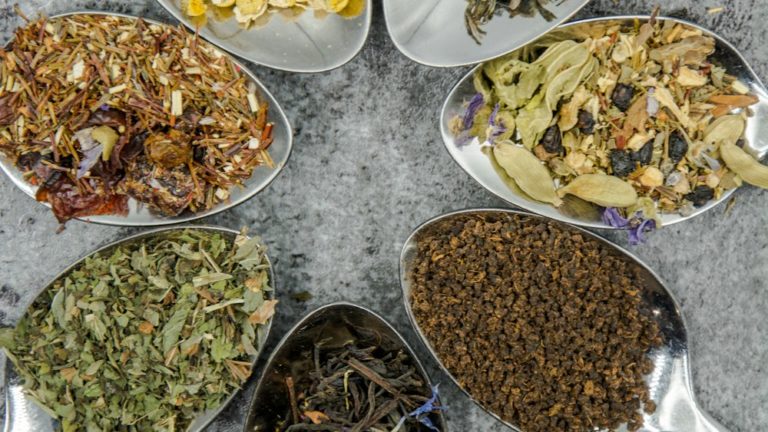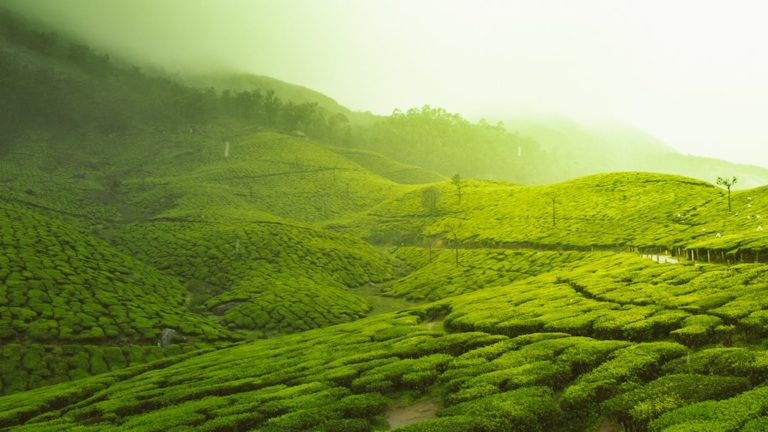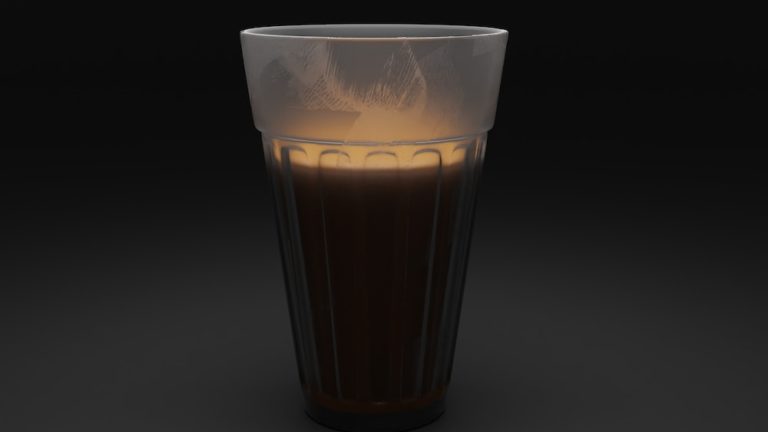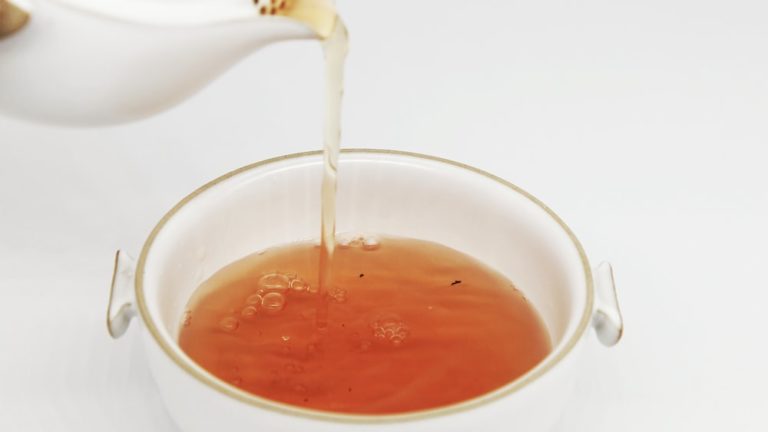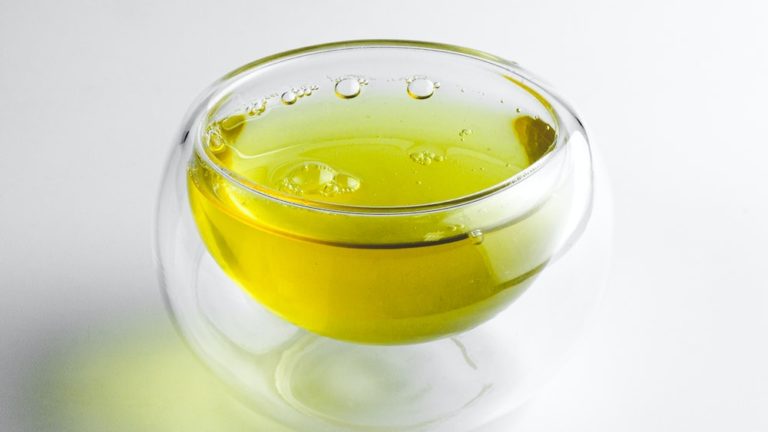Does Tea Break A Fast? Discover The Truth And Benefits
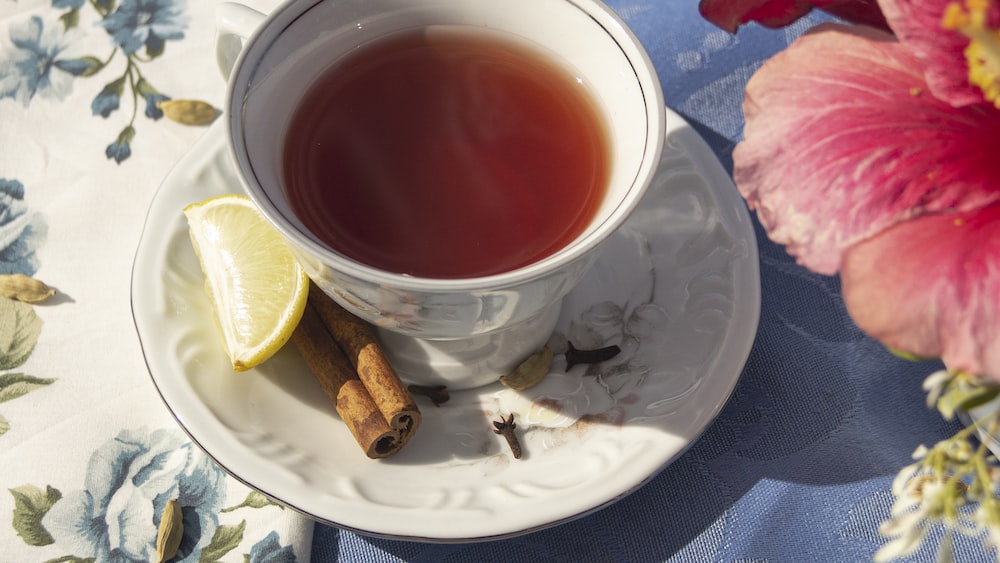
Does Tea Break A Fast? Discover The Truth And Benefits
Hello there, tea connoisseurs and wellness warriors alike! Have you ever been midway through a mouthful of your favorite brew, mid-fast, and suddenly wondered if this delicious concoction is breaking your fast? Is that delicate dance of tea leaves in your cup more of a rowdy fast-breaking rave? As fellow tea lovers and health enthusiasts, we’ve asked ourselves this question too. One minute we’re enjoying a brew, and the next we’re suffering a tea-identity crisis.
Pour yourself a hearty cup, sit back, and allow us to take you on a swirling journey through the world of fasting and teas. Shakespeare posed the question, “To be or not to be?” We ask: “To brew or not to brew?” Is this a calamity of epic proportions, or are we merely steeping in a teacup of confusion? Let’s find out!
Understanding Fasting and Its Benefits
Unearthing the benefits of fasting is like embarking on a treasure hunt, where every new finding feels like striking gold. The journey is enriching, the outcome rewarding. And, wait for it – tea might just be that secret map guiding us to the hidden treasure without harming our fasting routine!
What is Fasting?
Imagine, if you will, your digestive system as a diligent office worker. Day in, day out, it’s slogging away, processing every morsel you consume. Digestion-city never sleeps! Or does it? Enter, fasting – the much-needed vacation for your tummy-troubadour.
Fasting, simply put, is deliberately refraining from eating for a certain period. It’s not an extreme “starvation mode.” Instead, think of it as more of a “time-out,” a brief respite, a small pause button on your body’s non-stop digestive rhythm. It is the glorious symphony of silence in the grand orchestra of digestion. And, surprisingly, this silence can sing volumes for your health.
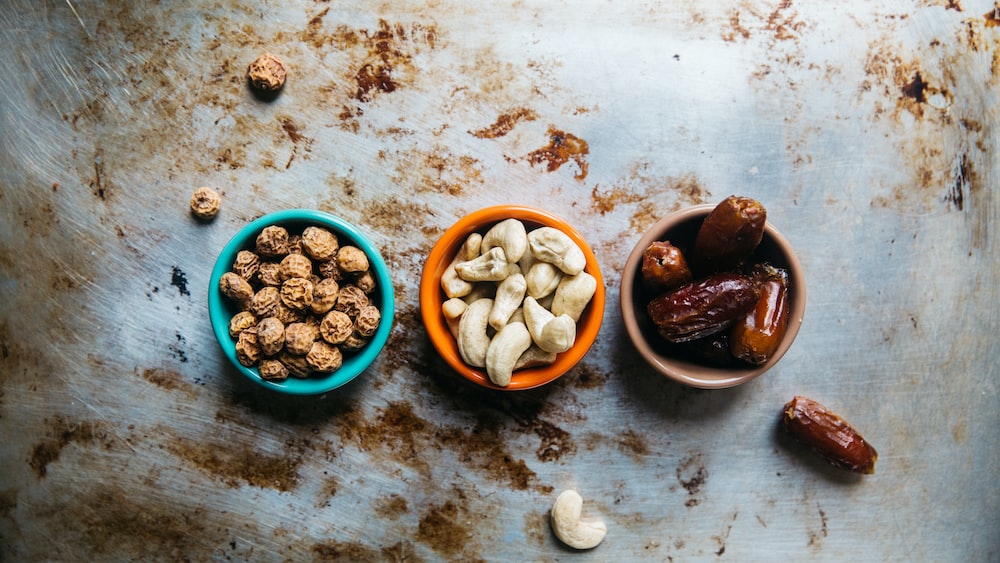
Fasting is like a vacation for your digestive system, giving it a much-needed break from its non-stop rhythm and providing potential health benefits.
Health Benefits of Fasting
Truth be told, fasting is as much a journey of self-discovery as it is of self-discipline. Unbeknownst to most, fasting is not a new fad diet, but rather, it’s as old as the hills. Your body, like a professional ballerina, takes this break in food consumption and gracefully pirouettes into an enhanced state of metabolic function.
- Body Detox: Cleansing faster than a mop on espresso, fasting helps rid the body of toxins, giving “clean eating” a whole new meaning!
- Improved brain function: Say hello to a sharper mind. Fasting is like a Rubik’s cube for your mind, triggering brain-enhancement mode.
- Weight Management: No more dreaming of those skinny jeans. Fasting is your fairy godmother, aiding in weight control.
The Role of Tea in Fasting
Tea, just like its coffee cousin, can bring a much-needed spark of joy (and wakefulness) to any fasting period. But how does our beloved brew fit into the fasting frame without toppling it over?
Why Tea Does Not Break A Fast
The tea-rrific (is that a bit too much?) news is that most teas don’t play the foul game of breaking your fast. But why? The answer lies in the low-calorie content of tea. Regular, unsweetened teas generally have less than 2 calories per cup. Talk about a “light” beverage!
Moreover, the types of nutrients in tea (polyphenols and catechins) aren’t enough to kick you out of your fasted state. These bad boys work quietly backstage, promoting health benefits without attracting the unnecessary attention of your digestive enzymes.
And here’s the tea, folks: according to a study in the American Journal of Clinical Nutrition, consuming small amounts of calories (less than 50) doesn’t disturb your fast. This gives our favorite low-cal teas a deserved, free-access pass through the fasting gates.
The Effect Of Tea Caffeine On Fasting
Here’s where things might seem a little dubious. Caffeine can be that potentially risky dive into murky waters. Isn’t it supposed to trigger an insulin response, thus interrupting your fast? Not quite.
The truth is, caffeine actually aids in fat-burning during a fast, working as an accelerant to your fasting benefits. So, go ahead, sip on that caffeinated tea. But here’s where balance kicks in. While some are able to web-sling through their day effortlessly after a caffeinated brew, others might have unpleasant reactions, like increased heart rate or jitters.
Types of Tea and Their Impact on Fasting
Just like the Beatles and their various hits, not all fasting teas are created equal. Each tea has its unique flavor and fasting impact.
Black Tea and Fasting
Black tea can be the Batman of fasting teas – dark, intense, and benefit-packed. It’s low in calories, making it a perfect fasting companion. More importantly, black tea is a great source of flavonoids, aiding in reducing weight and cholesterol levels. A superhero indeed!
Don’t let the intense color fool you though, this mighty brew can keep your fast intact while working overtime to offer health benefits. It’s like having your cake and eating it too, only without the cake…and calories.
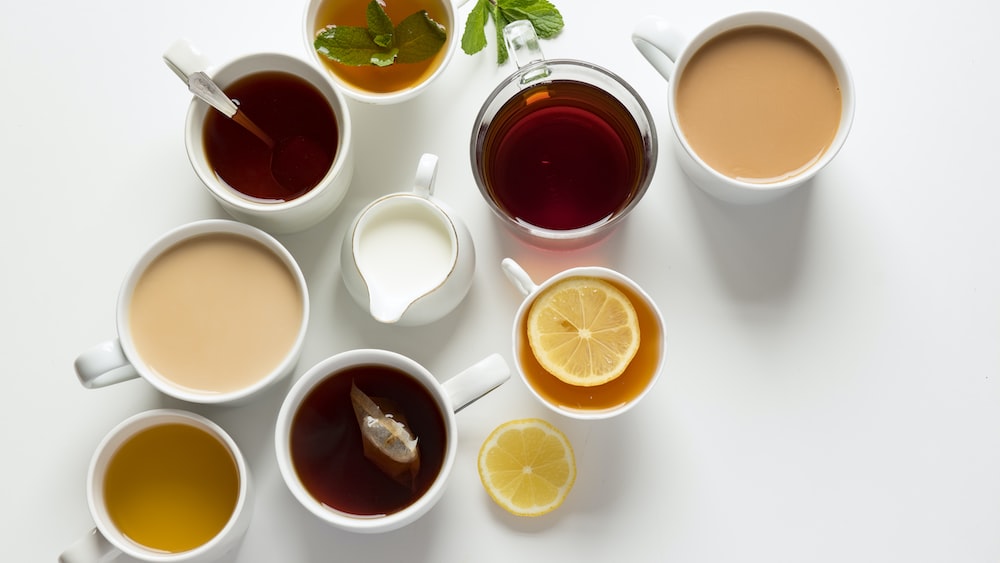
Green Tea and Fasting
Well, would you look at that, we’re talking about the “champagne of teas”, green tea! Green tea has been the talk of the town in the world of intermittent fasting, and for good reason. Let’s break it down, or rather, let the green tea do the breaking.
Not only does green tea keep your fast intact, but it also supercharges your fasting benefits. How’s that for multitasking? What’s even better is that the tea isn’t just sitting around, quivering its leaves in anticipation – it’s doing something. Epigallocatechin gallate, also known as EGCG (because let’s face it, that’s a mouthful), a dominant antioxidant in green tea is quite the hard worker. It’s been found to improve insulin sensitivity and increase fat oxidation, making your body a mean, lean, fasting machine.
Herbal Tea and Fasting
Herbal teas are like that eclectic group of friends you had in college – a mixed bag, each with their own personality, but altogether a perfect ensemble. From chamomile, peppermint, to rooibos, when it comes to herbal teas and fasting, the question isn’t if they break your fast, but rather which ones offer added benefits during your fasting hours.
Let’s take chamomile, for instance. Picture it as the gentle friend who has a knack for easing tension. Chamomile isn’t just there to comfort you on a rough day or help you sleep – it also assists with digestion and reduces inflammation. Now, didn’t that friend just become your best buddy during your intermittent fasting journey?
Then there’s the feisty fellow: ginger tea. We’ll dive into this lively character next, but spoiler alert: it’s got some serious fasting advantages.
Ginger Tea and Fasting
Now here comes the spicy one of the group, ginger tea. More than just a pungent kick to your taste buds, it’s a hefty ally in your fasting journey. Research shows that ginger has thermogenic properties that can help keep your metabolism rocking. Isn’t it exciting when your favorite spiced tea moonlights as a metabolic booster?
Not to mention, ginger’s anti-inflammatory and digestive benefits. It’s like the bonus track on your favorite album – you didn’t expect it, but boy, it makes the experience so much better. Trust me, your fasted tummy will thank you for this!
Matcha Tea and Fasting
Oh, you thought we forgot about matcha? Never! This vibrant green superhero could never be left out of the fasting dialogue. Unlike the humble green tea, matcha is made from ground tea leaves, giving it a higher concentration of EGCG and a rightful place in the fasting hall of fame.
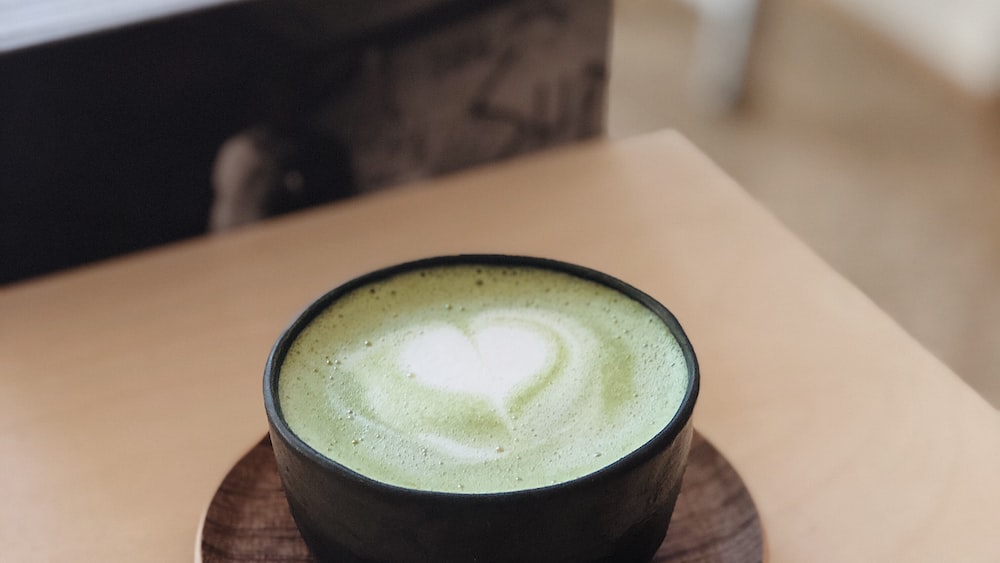
In case you’re wondering, EGCG is that marvelous compound we met earlier in green tea. It’s renowned for its antioxidant powers and capability to maintain insulin sensitivity, making it a perfect companion for your fasting journey. Plus, the caffeine in matcha is absorbed slower than in coffee, offering a sustained energy boost without causing those dreaded jitters or crashing – it’s the Iron Man of tea during fasting.
Matcha, with its higher concentration of EGCG and slower absorption of caffeine, is the perfect companion for fasting, offering sustained energy without jitters or crashing.
Cinnamon Tea and Fasting
Here we enter the realm of cinnamon tea, filled with inviting aromas reminiscent of grandma’s kitchen. Despite its homely vibes, this tea is not just about comfort; it’s backed up by impressive science too.
When you sip on cinnamon tea during your fasting cycle, you’re not just taking in a hug in a cup, you’re encouraging better insulin sensitivity and reducing inflammation. No wonder it’s often whisked into bone broth and hailed as a fasting superstar!
Peppermint Tea and Fasting
Completing our tea roster is peppermint tea – the refreshing one, reminiscent of crisp winter mornings. It’s amazing how a simple sip can transport you to such vivid memories, isn’t it? But let’s step out of memory lane into the domain of fasting benefits.
Peppermint tea has been found to soothe your stomach and promote digestion, making it a valuable contributor during your fasting periods. In other words, it keeps your digestive system from rebelling during fasting hours and helps you sustain your fast with less discomfort. Plus, the invigorating flavor of peppermint tea can help curb your cravings and keep the boredom at bay. Who knew fasting with tea could be this minty fresh?
Teas to Avoid During Fasting
Now, while we’ve been singing praises, it’s crucial to note that not all teas are well-suited for fasting. Just as there are heroes in our tea-verse, there are also villains, teas that you should avoid during fasting. Let’s reveal the culprits.
Tea with Milk
Let’s face it, who doesn’t love a splash of milk in their tea? But when you’re fasting, this creamy indulgence should stay off the table. Why, you ask? Well, milk is packed with proteins and sugars which can trigger an insulin response and technically break your fast.
Not just a mere roll of the dice, this information is backed by science. A study found that consumption of milk leads to a significant rise in insulin levels, enough to interrupt your fasting cycle. As enticing as a milky brew might be, it’s best to save it for your eating windows.
Moreover, remember when we talked about the complex flavors and nuances of tea? Adding milk can mask some of these, meaning not only would you potentially be breaking your fast, but also missing out on the complete tea experience.
Teas with Sugar
Here comes the elephant in the china shop, ready to crash your fasting party. Yep, you caught me. It’s sugary tea! Now, I know it’s a heartbreaker for many of us – after all, is there anything cozier than a cup of sweet, piping hot tea? But hear me out, folks. Sweets, including our dear old sugar, come packed with calories. No, that’s not hyperbole – it’s science!
The moment you spoon that granules of sweetness into your brew, those sneaky calories leap frog into your system, setting your digestion machinery into motion. Alas, the ghost of glucose past does not abide by the spirit of fasting. Which, if you recall, kinda involves taking a break from calories.

“But, what about hibiscus tea with a hint of honey?” you ask? Unfortunately, honey’s in the same boat with sugar. When it comes to fasting, any sugar – refined, raw, honey, or otherwise – is considered a party pooper extraordinaire!
Sugary tea, including honey, is a party pooper extraordinaire when it comes to fasting because it contains calories that go against the spirit of taking a break from calories.
Health Benefits of Drinking Tea While Fasting
Moving onto happier trails, let’s talk about the harmony of tea and fasting. Like Batman and Robin, or scones and jam, these two offer a brilliant duo that can bring a wellness extravaganza to your life! Fasting bolsters your body, trimming down unnecessary fat, while building your defense power. Combine that with the antioxidant properties of tea, and you’ve got yourself a winning formula!
FAQs
1. Does any type of tea break a fast?
When asking whether any type of tea breaks a fast, it’s important to note that the tea by itself, whether it’s green, black, or even hibiscus tea, doesn’t break a fast. However, what can break the fast are additives such as milk, sweeteners, and sugar.
2. Can I add sweeteners to my tea during fasting?
While the idea of adding sweeteners to tea might seem tempting during a fast, doing so could interrupt your fasting period. This is because most sweeteners contain calories, which trigger a metabolic response and disrupt the fasting state.
3. How does caffeine in tea affect fasting?
The effect of caffeine in tea on fasting depends on individual tolerance but generally, caffeine in moderation doesn’t disrupt a fast, and can actually enhance its benefits by stimulating fat oxidation and boosting metabolism.
4. What are the best teas to drink while fasting?
The best teas to drink while fasting are those without added calories – that means plain leaf teas without added sweeteners or milk. Green tea, black tea, oolong tea, and herbal teas like hibiscus tea, are all excellent choices that offer a variety of health benefits while supporting your fast.
Conclusion
As we draw the curtain on this subject, let’s just remember that consuming tea during a fast can be a beautifully beneficial and serene experience, provided we use wisdom to guide our choices. And while parting with our beloved sweeteners might feel like a tragedy reminiscent of Romeo and Juliet, the rewards make every sacrifice worth it!
Stay strong, tea-venturers! And above all, remember: the spirit of fasting is rooted in mindfulness and peace, not deprivation. Don’t forget to enjoy your journey through tea and wellness, one sip at a time.
So, until we meet again, brewing and steeping,
Yours,
Zoe.


